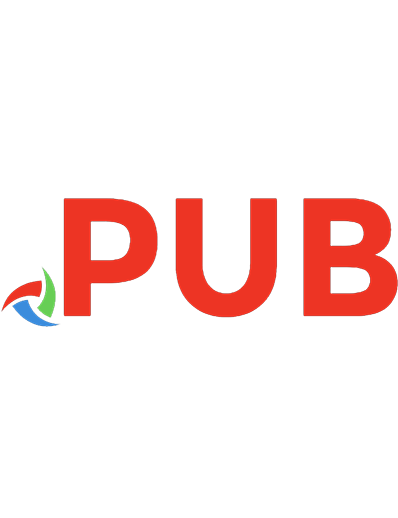Welcome, curious souls! Have you ever found yourself in the midst of a captivating conversation with friends or colleagues, only to realize that some commonly known facts are not well-known at all? Well, you are certainly not alone. The world we inhabit is a treasure trove of knowledge, and yet, some facts seem to have slipped under the radar of many people. In this enlightening article, we’ll explore some astonishing facts that might just make you question what you thought you knew about the world we live in. So, grab a cup of tea, settle in, and let’s embark on a journey of discovery together as we delve into the fascinating realm of the unknown.
Table of Contents
- The Surprising Gap in General Knowledge Among People
- Common Misconceptions and Their Origins
- The Impact of Limited Facts on Decision-Making
- Uncovering the Unawareness: Startling Facts People Typically Miss
- Q&A
- In Summary

The Surprising Gap in General Knowledge Among People
In today’s fast-paced world, we often assume that people have a certain level of general knowledge. However, it is becoming increasingly evident that there is a surprising gap in basic knowledge among individuals. This lack of fundamental information can not only hinder personal growth but also have a significant impact on societal development.
One area where this knowledge gap is particularly alarming is geography. Many people struggle to identify countries on a map or even locate their own city on a globe. This limited understanding of geography not only affects one’s ability to navigate the world but also contributes to a lack of cultural awareness and empathy towards different communities.
Additionally, the lack of general knowledge in science is equally concerning. Basic scientific concepts such as climate change, the importance of vaccinations, or the impact of technology are often misunderstood or overlooked. This can lead to misinformation spreading rapidly and prevent us from making well-informed decisions that shape our lives and the world around us. By investing time in expanding our general knowledge, we can bridge this surprising gap and build a more informed and connected global community.

Common Misconceptions and Their Origins
It’s no secret that misconceptions can often lead us astray from the truth. In this section, we debunk some common misconceptions and dive into their fascinating origins. Let’s unravel the mysteries and shed light on the real facts!
The Great Wall of China is Visible from Space
Contrary to popular belief, the Great Wall of China cannot actually be seen from space with the naked eye. This misconception likely began due to a misinterpretation of a statement from the early 20th century. It was claimed that the wall was the only human-made structure visible from the moon, but this turned out to be false. In reality, many man-made structures and even large landmasses are visible from space, given the right conditions.
The idea of the Great Wall being visible from space persisted for years, perpetuated by popular media. Eventually, it became a widely accepted misconception that just happened to capture the imagination of many people. So, while the Great Wall is an extraordinary architectural marvel, it unfortunately doesn’t quite reach the far reaches of outer space!
Humans Only Use 10% of Their Brains
Ever heard the claim that humans only utilize a mere 10% of their brain capacity? This myth has sparked curiosity and inspired Hollywood blockbusters, but let’s set the record straight. Science tells us that people typically use much more than just a fraction of their brains. Through advanced brain imaging techniques, it has been confirmed that different areas of the brain are active, even during seemingly low-impact tasks.
The origins of this misconception trace back to the early 20th century when scientists initially misunderstood brain functionality. The myth gained traction and became ingrained in popular culture, eventually leading to a widely shared but inaccurate belief. So, rest assured, we have the ability to tap into the remarkable power of our brains far beyond the limitations of that fictional 10% threshold!

The Impact of Limited Facts on Decision-Making
When it comes to decision-making, having access to accurate and complete information is crucial. However, the impact of limited facts on our ability to make informed choices cannot be underestimated. In a world where the influx of data is constant, it’s becoming increasingly challenging to separate reliable information from the noise. This lack of reliable facts can have significant consequences, affecting both individuals and organizations.
One of the key impacts of limited facts is that it hampers our ability to make well-informed decisions. Without a comprehensive understanding of a situation, we may rely on assumptions, personal biases, or incomplete data, leading to misguided choices. This can result in missed opportunities, wasted resources, and even long-term negative consequences. Moreover, limited facts can undermine our confidence in decision-making, causing hesitation and indecisiveness. Doubt and uncertainty can prevent us from taking the necessary risks or choosing the best course of action.
- Limited facts may lead to inaccurate assessments of risks and benefits.
- It can increase the likelihood of making decisions based on emotions rather than objective reasoning.
- With limited facts, the decision-making process may become biased towards familiar or popular options.
- It can hinder creativity and innovation as new possibilities may go unrecognized without the appropriate data.
It is essential to acknowledge the impact of limited facts and actively seek out reliable and diverse sources of information to counteract this limitation. By doing so, we can enhance our decision-making abilities, improve outcomes, and adapt more effectively to an ever-changing world.

Uncovering the Unawareness: Startling Facts People Typically Miss
As we go about our daily lives, it’s easy to overlook some astonishing facts and details that surround us. Let’s take a moment to unravel a few of these mind-boggling secrets, making us take a step back and ponder over the extraordinary world we live in.
Did you know that a hummingbird’s heart beats up to 1,260 times per minute? That’s 21 beats per second! These delightful little creatures are not only known for their vibrant feathers and incredible agility but also for their incredibly rapid heartbeat, enabling them to hover and flutter with astonishing precision. It’s truly a marvel of nature.
- Another intriguing fact you may not be aware of is that honey never spoils. Archaeologists have found pots of honey in ancient Egyptian tombs that are over 3,000 years old and still perfectly edible. Due to its low moisture content and acidic pH value, honey creates an inhospitable environment for bacteria and other microorganisms, making it one of the few foods that have an eternal shelf life.
- On a rather unusual note, did you know that a group of flamingos is called a “flamboyance”? These striking birds are not only famous for their vibrant pink plumage and their extravagant courtship dances but also for their fittingly unique collective noun.
These are just a few examples of the countless astounding facts out there that often go unnoticed. Next time you find yourself caught up in the whirlwind of daily life, take a moment to appreciate the incredible wonders and hidden details that surround us every day. There’s no telling what astonishing facts are waiting to be uncovered right under our noses!
Wrapping Up
Thank you for taking the time to read this article on the topic of “People Don’t Know Facts.” We hope that you have found it informative and eye-opening. In a world where information is readily available at our fingertips, it is surprising how little many of us actually know about certain topics.
The purpose of this article was not to shame or embarrass anyone for their lack of knowledge, but rather to encourage curiosity and a thirst for learning. It is essential to recognize that we all have gaps in our knowledge, and that’s perfectly okay. It is through acknowledging our limitations that we can embark on a journey of self-improvement and education.
In an age where misinformation can spread like wildfire, it is crucial to be discerning and critical thinkers. Just because something is widely believed does not mean it is based on factual evidence. Take the time to question and investigate the information presented to you. By doing so, you can separate facts from fiction, making well-informed decisions and contributing to a more informed society.
Remember, learning is a lifelong process. Embrace the opportunity to expand your knowledge, challenge your beliefs, and engage with others in open and respectful discussions. By continuously seeking out new information and being open to different perspectives, we can broaden our understanding and grow both intellectually and emotionally.
We hope that this article has inspired you to become a more informed individual and recognize the importance of facts in our society. Together, let us strive for a future where knowledge is admired and respected, and where we all contribute to a more knowledgeable and understanding world. Keep learning, keep growing, and never stop seeking the truth.
















